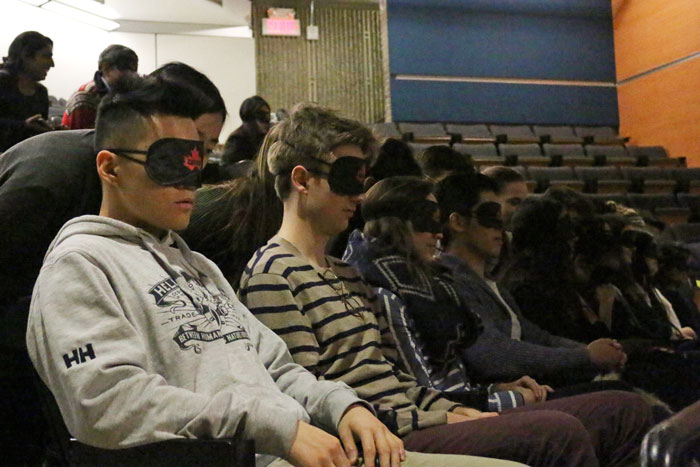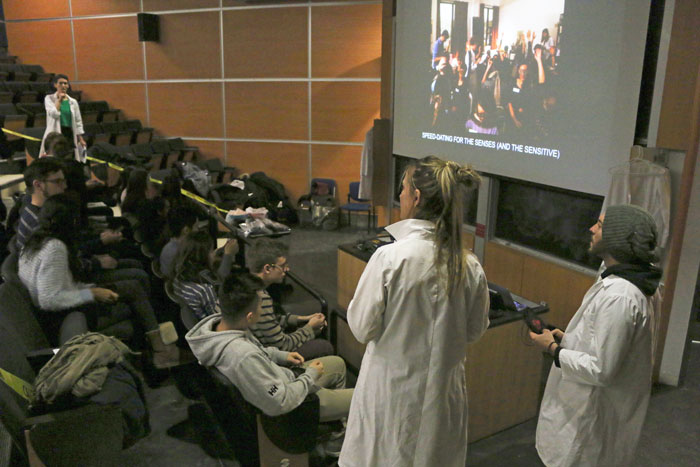Love is in the air and, according to the Montreal-based organization Scientists for Love, it is also in our senses. On Feb. 9, founders Amy Chartrand and Leigh Kotsilidis spoke during the Science Undergraduate Society’s (SUS) Academia Week 2017 “Stranger Things,” introducing the audience to a new method for building human connections.
“[Scientists for Love is] an organization devoted to the scientific study and advancement of love in all its forms,” Kotsilidis said. “Not just the love that you might feel for a romantic partner, also the love you share with family members, friends, and even complete strangers.”
While brainstorming project ideas in Casa Del Popolo, Chartrand and Kotsilidis realized that it was more difficult to engage with the people physically around them than through virtual platforms, such as Tinder and Facebook.
“We were totally surrounded by a sea of people we thought were really interesting and cool, but we had no way to bridge the gap and talk to them,” Chartrand said. “What is going on with our interactions that we can’t bridge the gap in this room, but we have no problem connecting with people on all sorts of social media?”
They looked to the scientific method for a solution that would help people develop connections through social interactions.
“We thought, ‘What if we tested all five senses […] to see if the senses themselves, if when examined in isolation, could make a prediction of who you would be compatible with?’” Chartrand said. “It was all a big joke, until we started actually thinking about it and talking to people about it.”
Their first event, “Speed Dating for the Senses and the Sensitive,” launched in January 2014. They tested each smell, taste, hearing, sight, and touch during the night through five experiments, which measured each sense in isolation.
Chartrand and Kotsilidis illustrated their method on their McGill audience. It began with putting on blindfolds and listening to the count of 10 by several different voices and picking the most attractive voice. Then, audience members experienced the touch of another participant while blindfolded and listening to music. The event culminated with looking at several participants in the eyes without speaking. These experiments were all developed to encourage connection through atypical means with a focus on the effect of the senses.

“What we are doing is part science, part performance art,” Kotsilidis said. “We consider the science we do not for us, but for the participants. All the data and all the information we gathered throughout the evening is handed over to all the participants to analyze and draw their own conclusions.”
Unlike psychological studies aimed at gleaning generalizable findings, these experiments are designed to connect individual participants to each other and enable them to gain a better understanding of themselves. They use the scientific method to inspire connections by leaving the analysis to the participants.
“We really believe that there is a truth in your own perception of your own experience as a human being, and so for us, if you examine your own perception of your own experience through the scientific method, then you are a scientist,” Chartrand said.
Scientists for Love have will have their next event March 18, 2017.






